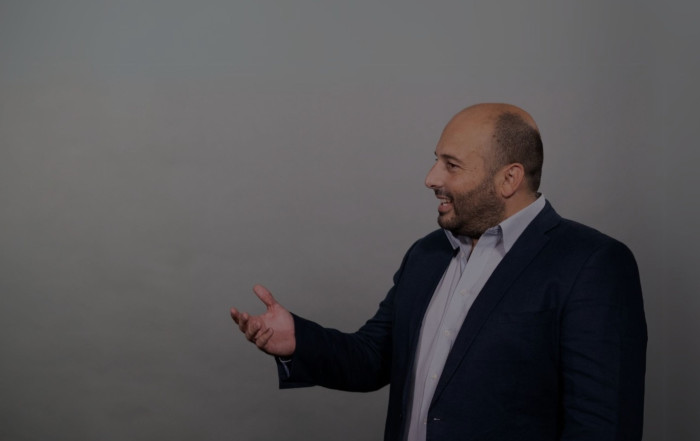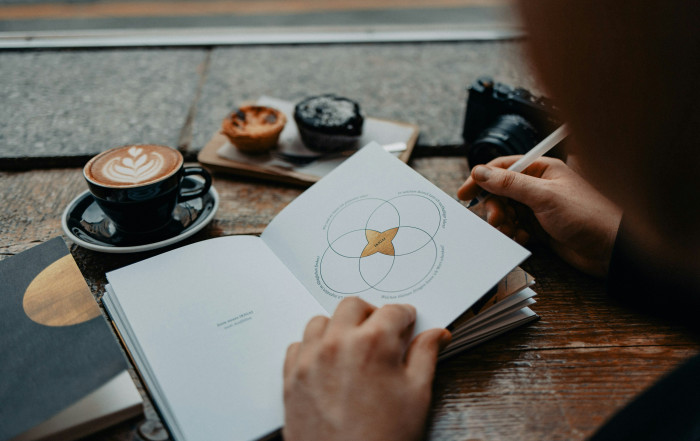Once upon a time, a dog came upon a juiced bone. Thrilled with his gift, he gripped it securely in his teeth and hurried off to savour it quietly. He passed a little bridge across a quiet pond on his route. He peered down and saw his reflection in the water below, but he didn’t realise it was only a reflection. Instead, he considered it another dog with an even larger, juicier bone.
Greedy, the dog concluded he also wanted that other bone. Hoping to frighten him off and grab his bone, he opened his lips to bark at the “other dog” in the water without thinking. But as he did, his bone dropped out of his mouth with a splash and rapidly sank out of view.
Left with nothing, the dog waited at the pond, realising too late that his avarice had lost him his valuable supper. Understanding that sometimes, in our search for more, we lose what we already have, he became wiser and sadder.
Centring on the themes of greed, contentment, and the dangers of misguided desire, the ancient tale The Dog and His Reflection provides priceless lessons. Though it can appear straightforward, the narrative has lessons that might significantly influence our actions and way of life.
Lessons
This story teaches us several important lessons:
- Greed Might cause loss. The main lesson is that our greed could lead to our loss of what we already have. The dog’s avarice for the “other bone” in the narrative closes his eyes to the worth of the one he owns. He comes empty when he releases his bone to grab at an illusion. This reminds us strongly that an obsessive need for more might cause us to ignore our current gifts, resulting in disappointment or loss. Whether in relationships, money, or personal achievements, this course of instruction has applications in many spheres of life. The desire to pursue more may outweigh our capacity to value what we already have, closing our eyes to our initial joy and stability.
- Value Your Work. The story challenges us to appreciate what we already have have and see its worth. People often want what they believe to be superior rather than value what they now possess. We are usually left unhappy when we never stop looking, as there is always something “better” outside our grasp. Appreciating what we have can help us feel fulfilled and lessen the need to pursue flimsy rewards.
- Illusions Might be Deceptive. In the narrative, the dog falls for another dog with better bones by mistake from his own mirror. This reflects the human inclination towards illusion-based misleading behaviour (social media comes to mind). Many of us might find ourselves caught in the trap of thinking that, in terms of riches, relationships, or achievement, others have it “better than we do”. However, there are times when our fears or lack of knowledge distort what we see. The lesson here is to be careful and not to act impulsively depending on looks or presumptions. Before making judgements, we should be clear-minded to avoid falling into the trap of pursuing goals that are not beneficial to us or existent.
- Contentment Releases Joy. The parable also teaches us that happiness is dependent mainly on satisfaction. Our society’s need for more—money, goods, and accomplishments—can often overwhelm us. This story teaches us that a great sense of calm and happiness can result from contentment with what we have. Focusing on contentment can help us have a fuller, happier life rather than always trying for something we lack. Accepting satisfaction lets us release the tension and disappointment connected with a never-ending search.
- Self-Control and Awareness The dog’s instinctive response to pursue the other bone bet on ignorance and lack of self-control. He gets rid of what he has in search of an illusion without thinking and regrets it. Using Mindfulness—that is, by means of complete awareness of our ideas and emotions—we may prevent making comparable errors. Self-control helps us to evaluate the results before acting on our needs and going through them.
Finally, The Dog and His Reflection reminds us to appreciate what we already have, avoid the trap of illusions, and practice mindfulness, contentment, and thankfulness. It reminds us that as we pursue more, we risk losing what is precious and that real happiness usually comes from enjoying the blessings currently within our reach. This little story reminds us to value what we have instead of letting avarice drive us to follow fantasies.
Share this Blog
Recent Thoughts
Rumours, Noise and Real Growth: Learning to Keep My Eyes on the Road
“Matthew is a closeted gay.”“Matthew jumps from woman to woman.”“He’s money-minded.”“I’ve heard he sees women for free if they ‘offer favours’.”“I’ve heard he’s
Ikigai vs. Workaholism: Why I’ve Given Up Perfectionism and Workaholic Tendencies
Throughout my career, I've always faced problems head-on. Confronting challenges directly is part of who I am. However, there was a time when




